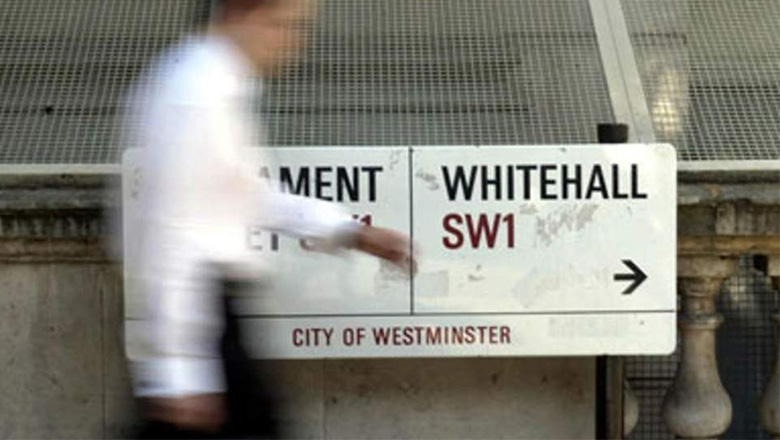On 16th July, twelve days after Labour won a landslide victory at the general election, Prime Minister Sir Keir Starmer launched a ‘root and branch review of UK Armed Forces’. So begins the 2025 Strategic Defence Review, the UK’s fourth major defence and security study in the last ten years.
Purpose of the Strategic Defence Review
The terms of reference of the Strategic Defence Review confirm that it will determine the roles, capabilities and reforms required by UK Defence to meet the challenges, threats and opportunities of the twenty-first century. They go on to say that these must be deliverable and affordable within the resources available to Defence in accordance with Labour’s manifesto commitment to increase defence spending to 2.5 per cent of GDP when the country can afford it.
Scope and Themes of the Strategic Defence Review
The Strategic Defence Review has licence to consider all aspects of Defence, involving and receiving inputs from other Government Departments, agencies and industry, in areas where they support UK Defence. However, all other areas of national security policy are outside the scope of the Review.
The following themes cover the key issues considered to be in scope:
- The strategic and operational context, including the threat picture and the current baseline state of UK Defence.
- The major features of the force structure needed to create the necessary integrated multi-domain Defence capability of the future.
- The opportunities for modernisation and transformation, and greater productivity, including through the rapid and consistent application of Digital Age technologies.
- The UK’s international partnerships and alliances, and how these can be strengthened in the cause of collective security and deterrence.
- The approach to be taken to acquisition and support in order to deliver the required capabilities in a timely way, and how to secure the best possible value for money and rapidly changing technology.
- The approach to recruiting, educating, training and retaining the people needed for One Defence, including Regular, Reserve, Civil Service and industry. This is to include how Service life can be improved for those who commit to serve their country in uniform.
- The Defence Estate including how it can be modernised and streamlined to support both defence outputs and wider government objectives on housebuilding and net zero.
- The state of the defence technological and industrial base, and the contribution of Defence to the government’s Growth Mission.
Arrangements for the Strategic Defence Review
The Strategic Defence Review will be overseen by Defence Secretary John Healey, but headed by three external reviewers. The lead Reviewer is Lord Robertson of Port Ellen, with General Sir Richard Barrons and Dr Fiona Hill as the other two Reviewers. This trio will be supported by a Defence Review Team, comprising senior experts from inside and outside the MoD. They are expected to consult widely, with input expected from Parliament, the Defence community, allies, academia, and industry. A final report is due in the first half of 2025.
Analysis
With three major reviews (the 2015 Strategic Defence and Security Review, the 2021 Integrated Review, and the 2023 Integrated Review Refresh) and two other national security and defence reviews (the 2018 National Security Capability Review and the 2018 Modernising Defence Programme) since 2015, it is not unreasonable to question the need for yet another time-consuming examination of UK defence and security. The Labour Party’s consistent answer to that question has been that they need to see ‘under the hood’ of defence, to appreciate fully the situation they have now inherited. While this answer is understandable, it is not compelling. Most defence analysts are arguing that significant change is more than overdue; the Strategic Defence Review timeline means that when changes finally comes, it will be even more urgent than it already is.
At first glance, while the scope of the Strategic Defence Review may appear to be broad, in terms of national security it is actually quite narrow. Recent reviews have all been cross-government, Cabinet-led, and focussed and the entire range of national security challenges. The last defence-specific review was undertaken back in 1998, and even that drew criticism from some quarters for being overly fixated on military outcomes. Because of the approach taken for the 2021 Integrated Review, and its 2023 Refresh, the UK no longer has a recognisable National Security Strategy. Although one was arguably incorporated within the 2015 Strategic Defence and Security Review document, the UK has not had an easily identifiable National Security Strategy since 2010. The strategic and operational context may well be in scope for this review, but it will undoubtably be considered from a defence perspective. The danger of the Strategic Defence Review overlooking a significant national security challenge, because it is less than obvious to the Defence community, is high.
Every review, reaching back as far as the Sandy’s Defence Review of 1957, has been government led. Before 2010, that lead was the MoD; since 2010 responsibility has fallen to the Cabinet Office. Contracting out this Strategic Defence Review to three, very experienced, but external, reviewers is a gamble. However much it may want to, the government will find it extremely difficult to ‘long-screwdriver’ the process, and, as a result, it could end up with a set of very radical recommendations that may prove hard to accept, and even harder to implement. Internationally there is some precedent here. In 2022, the Australian government appointed a senior diplomat (Stephen Smith) and a former Chief of the Defence Force (Angus Houston) as the independent leads for its 2023 Defence Strategic Review. It subsequently supported their strategic direction and key findings, and confirmed that they would ‘inform aspects of Australia’s defence policy, planning and resourcing over the coming decades’.
Conclusion
There is a lot riding on the outcome of the 2025 Strategic Defence Review. In a more dangerous and volatile world, the Prime Minister expects it to deliver a new clear-eyed approach to the UK’s national defences, equipping the armed forces to tackle international threats head-on while keeping the British people safe and secure. Decisions already made about the review’s timing, scope, and process mean there is no guarantee he will get what he wants. In particular, handing over ownership to external reviewers may result in outcomes that are too clear-eyed, and thus unpalatable. As a former three-star civil servant once observed, the outcome of any review is about ‘spill[ing] the least amount of political blood, whilst trying to keep the most number of people [as] broadly happy as possible’. The Australian government found success contracting out its most recent strategic review of defence; there is no guarantee the UK government will be so fortunate.





